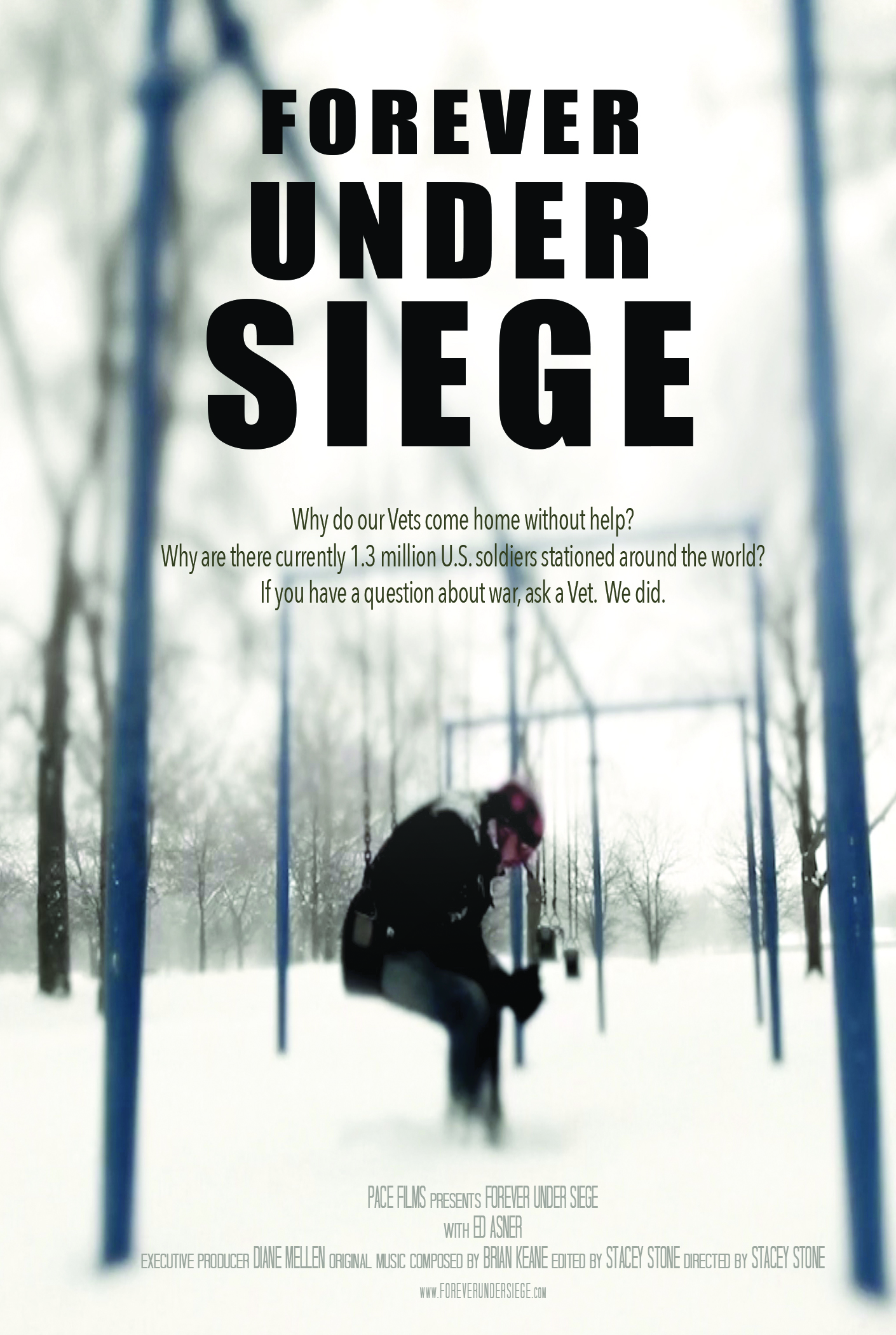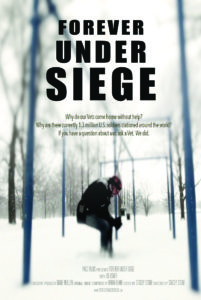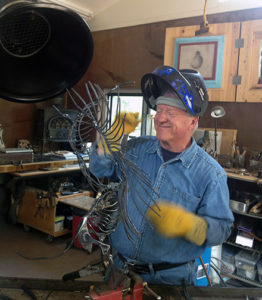
Documentary Short Film Review “Forever Under Siege”
WATCH THE TRAILER HERE
First, the Recap:
Unrelenting inner trauma. What seems so calm and controlled on the surface can sometimes only be a barely sustainable façade for a war that rages underneath, in the minds, hearts, souls, and bodies, of the men and women of our armed forces who return home with PTSD. With the U.S. currently seeing some form of active military action in seven countries between 2001 and present, it serves only to have more and more soldiers returning from the front lines under severe duress when expected to re-enter a civilian life as if nothing happened at all. PTSD is its own form of conflict, an overall attack on self in the wake of losing one’s innocence to the specter of war.
For all the benefits military service might hold–jobs, college paid for, etc–those who serve instead come back shell-shocked and unable to re-integrate into normal life. With a suicide rate quoted as up to 22 per day among veterans, it stands as a wrenching reminder that action needs to be consistent, from the volunteer all the way up to government/VA level, to ensure better steps are taken to treat those suffering from PTSD. When words from veterans like Lon Hodge, who stated “I’d give anything for one day of normalcy back”, or actor and Korean War vet Ed Asner who said “In 250 years we’ve been a nation, perhaps 21 of those have been free of war”, what more does it take to make us realize we cannot hear about PTSD enough–until it’s truly addressed as it should.
Next, my Mind:
Following up on their pair of 2017 documentary short films, “My Own War” and “Gander: America’s Hero Dog“, writer/director/cinematographer/editor Stacey Stone and producer Diane Mellen return with a harrowing wake-up call via this 37-minute documentary which pulls no punches and lets the viewer hear about the crippling effects of PTSD from a host of those who are currently battling it each and every day in conjunction with opinions from two clinical psychiatrists and several volunteers and spouses who likewise see “the invisible disease” hounding their patients and loved ones. “The impact of trauma is one of the largest commonalities of mental health difficulties”, states Dr. Kelly Woyewodzic, Psychiatrist. Hearing testimonies about those who won’t even go outside anymore, who experience mood swings, self-medicating, drinking issues, panic attacks, and hyper vigilance as their daily ritual, there’s simply no denying the highly emotional and slap-in-the-face nature of PTSD, which is exactly the tone and delivery Stone and Co. are going for in order that it hits a nerve and keeps the need for more dedication to helping veterans plagued with it to find the assistance they need, to show them a country that actually appreciates their sacrifices, and therefore provides a chance to, as Vietnam vet Bob Lecy says, “tell our story and return back to our humanity”.
Potent and sobering accounts of PTSD and its debilitating effects are presented throughout–candid, raw, and affecting–from Vietnam veterans Tony Cesario, Phillip Covington, and Bob Lecy, World War II vet Staff Sergeant Joe Geraldi (whose miracle story about being a bomber gunner is inspirational), Gulf War vets Kenny Bass, Captain Daniel M. Moore, and Major Brad Gollup, plus additional vets including Lon Hodge, Rupert Wenzel, Lis Allen, PhD, and Angela Walker all verbally painting the vivid tapestry of their own strife and/or advising about the steps they’ve taken to deal with/alleviate it. For different perspectives, we hear from clinical psychiatrists Dr. Woyewodzic and Dr. John Patrick Bair (whose notions on expressive therapy for vets via groups, community, involvement in the arts has been widely utilized), wife Roberta A. Becker (who’s supported her PTSD-stricken husband John for 5-6 years now), volunteer Mary Ann Lackovich, and Robert K. Bellows whose found his own way to bring some sense of peace for veterans. Add to this organizations like Kenny Bass’ The Battle Buddy Foundation or Robert K. Bellows’ Warrior Storyfield who are trying to be some of what we hope will become even more existing groups reaching out to vets offering creative and healing means to help squash PTSD.
One veteran stated “There’s no one right way to deal with PTSD. You have to try everything until you find what works for each”. What strikes you most is when asked if they would return to service, most of these amazing veterans said they would. Folks, I’ve said it before and it warrants saying it yet again. Whatever your personal beliefs about war and our involvement in it, we should never, ever give up supporting these men and women who are putting their lives on the line in order that we maintain the freedom in this country to speak our minds, whatever side that may come from. If we can, we should all see what we can do to help these soldiers and patriots return home, even while changed forever by what they’ve seen, and extend the hand of love, appreciation, and sincere assistance to aide them in finding a place to express themselves and ideally experience the inner healing they so desperately need. In total, “Forever Under Siege” is a necessary, punch-in-the-gut film that needs to be heeded for the greater good of this truly great nation and the exceptional servicemen and women who defend it on our behalf.
As always, this is all for your consideration and comment. Until next time, thank you for reading!





As Americans who benefit from the sacrifices our women and men in the armed forces, we should stand up for them and go above and beyond the call of our “duty,” as a society who is being kept safe, we must pull out all the stops to help our vets in every way possible. We could pour out reams of words, praises and thanks, but let’s pour out actions, time, thoughts and resources to help in the healing of minds, bodies, spirits and souls.